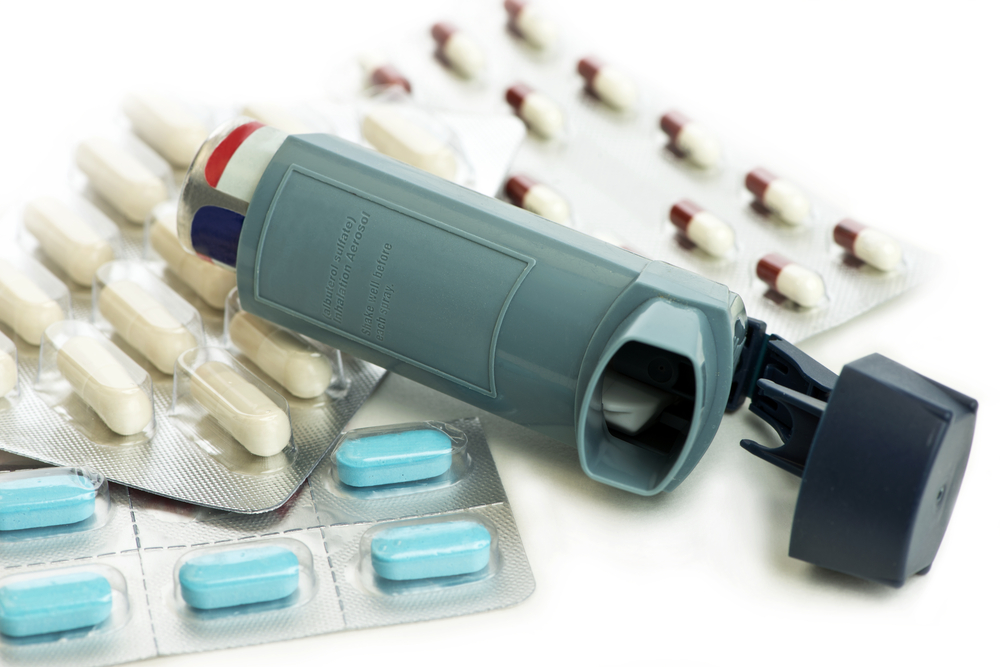Nucala (mepolizumab) was approved by the U.S. Food and Drug Administration (FDA) on Nov. 4 as an add-on medication, used in combination with other medications, to maintain asthma control in patients over the age of 12 with a history of severe exacerbations.
Patients with asthma have inflamed and narrowed lung airways that make breathing difficult. Estimates from the Centers for Disease Control and Prevention for 2013 indicate that over 22 million individuals live with asthma in the U.S. Asthma exacerbation is commonly referred to as an asthma attack, where symptoms suddenly worsen and could lead to hospitalization. More than 400,000 cases of such hospitalizations are recorded every year in the U.S.
While asthma cannot be cured, the symptoms can typically be improved with medicine. Two general classes of medications are utilized to treat asthma: 1) quick-relief medications such as salbutamol, and 2) long-term control medications employed as prevention for new exacerbations, such as corticosteroids. However, some patients with severe history of asthma exacerbations do not respond sufficiently to standard treatments and hence have difficulties in maintaining asthma control.
Nucala, a drug developed by GlaxoSmithKline, is shown to reduce levels of blood eosinophils, a category of white blood cells involved in development of asthma. Recently, the safety and efficacy of Nucala were both evaluated in patients with severe asthma through three double-blind, randomized clinical trials. The patients received Nucala via subcutaneous injection into the thigh, abdomen, or upper arm once every four weeks as add-on asthma treatment.
The results indicated that when compared to placebo, Nucala did not show significant improvement in lung function of the treated patients, as measured by the volume of air exhaled in one second. The drug’s therapeutic value, however, was demonstrated in the decreased frequency of emergency/hospitalization-related exacerbations and their recurrences. In addition, the patients on Nucala required a reduced amount of daily oral corticosteroid doses to maintain asthma control when compared to those on a placebo.
With respect to side effects, Nucala may cause back pain, fatigue, headache, and inflammatory reaction at the injection site. Other hypersensitivity-related symptoms such as breathing problems, fainting/dizziness, hives, and swelling of the face/mouth/tongue were also reported by some patients in the studies. Finally, Nucala could cause infection by Herpes zoster, as well as reactivation of the chickenpox virus, which causes a painful rash.
Overall, Nucala is shown to reduce the frequency of severe asthma exacerbations.
“This approval offers patients with severe asthma an additional therapy when current treatments cannot maintain adequate control of their asthma,” said Badrul Chowdhury, MD, PhD, director of the Division of Pulmonary, Allergy, and Rheumatology Products in the FDA’s Center for Drug Evaluation and Research, in an agency press release.

